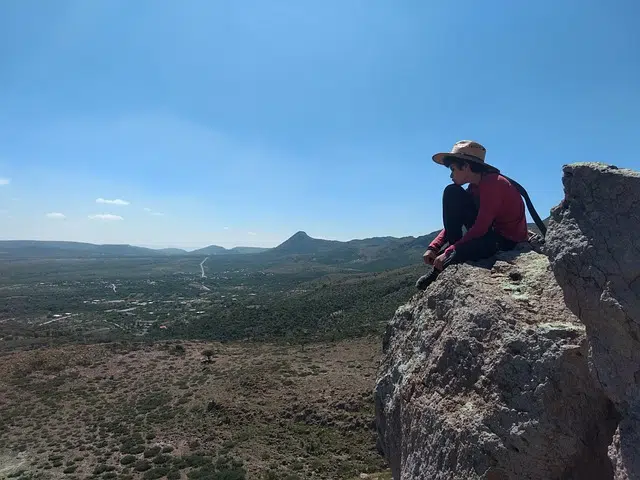
Someone who is nefelibata is "walking in the clouds."
Nefelibata is an adjective - also used as a noun - that refers to a dreamy or imaginative individual .
The etymology takes us to the Greek language, more precisely to the words nephélē (which can be translated as “cloud” ) and bátēs (linked to “one who walks” ). The nefelibata person, therefore, is one who “walks in the clouds” .
The correct ending
It is important to note that, according to the RAE , nefelibata has a single ending . The concept is used to accompany feminine or masculine nouns indistinctly. That is why we should speak of “los nefelibatas” or “el nefelibata” , and not change the letter A to an O when referring to individuals of the male sex.
Beyond this clarification, it is common to find the masculine version nefelibato. Although the use of this notion is not very frequent, it can be seen in articles in newspapers and magazines from various countries .
The idea of nefelibata in the works of Rubén Darío
Many people discovered the word nefelibata in “Epístola” , a poem that the Nicaraguan writer Rubén Darío dedicated to the wife of Leopoldo Lugones . In one of the verses, Rubén Darío says: “I walk, nefelibata, through the clouds” . As you can see, the poet says that he walks “nefelibata” (and not “nefelibato” ) to refer to his distance from mundane or everyday events.
Rubén Darío also used nefelibata in the poem “¡Eheu!” , from the book “El canto errante” . There he writes: “Nefelibata happy / I think I interpret…” .

He who is a dreamer can be described as a nefelibata.
The concept, the RAE and the etymology
As a result of Rubén Darío's work and his inclusion of this term in his poems, many people came to know it and concluded that he had coined it. The dictionary of the Royal Spanish Academy only added it in 1984. Continuing with the etymology, it is interesting to mention three other words that we receive from the Greek nephele :
* nephelion : a small spot found on the cornea of our eye. In this case, -ion is a suffix that acts as a diminutive;
* nefelemancy : this is divination using the observation of clouds as a reference point and trying to interpret the shapes drawn in them. Here we can also see the suffix -mancy , which gives the connotation of divination , as in velomancy or cartomancy ;
* nepheloid : an object whose shape resembles that of a cloud. The suffix -oid is used to indicate that the term "resembles" its first component, as in humanoid .
Characteristics of the nefelibata individual
Someone who is nefelibata, in short, has his mind focused on something abstract or on issues far removed from reality: he is not paying direct attention to his immediate surroundings.
It is important to note that the nefelibata person has this quality of being a dreamer throughout his life, so it is not a state . Experiences and the passage of time affect us, they force us to change to a certain extent, but it is not normal for an extremely practical person to become someone who ignores reality, or vice versa.
An attitude that can generate criticism
People with this personality type are generally admired for their ability to be happy despite problems, but they are also negatively criticized if this attitude leads them to ignore their most important obligations. Putting a smile on every obstacle to prevent it from destroying us is not the same as neglecting our children because we refuse to settle down in life .
Being a nefelibata, therefore, is not inherently good or bad: we must look at the consequences of this personality in each case and make a judgement regarding the actions (or lack of actions) that lead to a result. Similarly, we cannot say that the serious personality is good or bad, since in some circumstances it brings about beneficial results but in others it can be negative.
